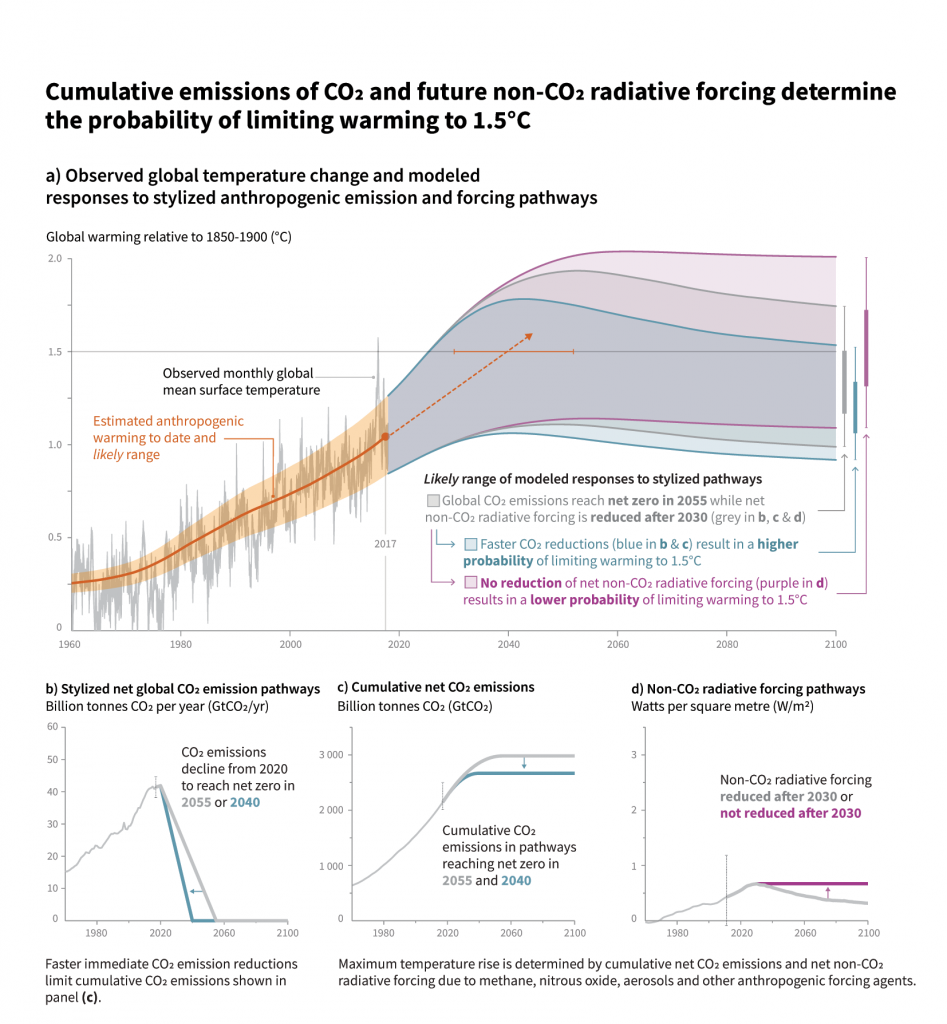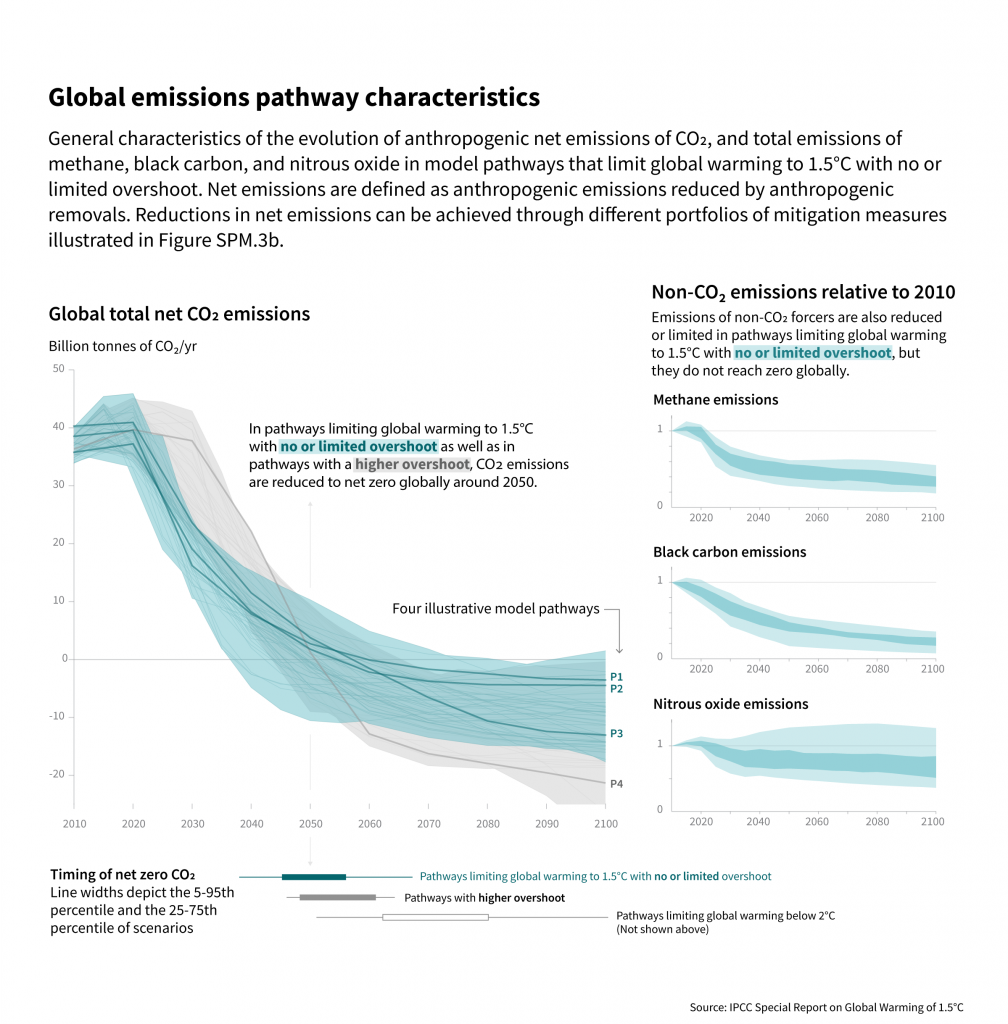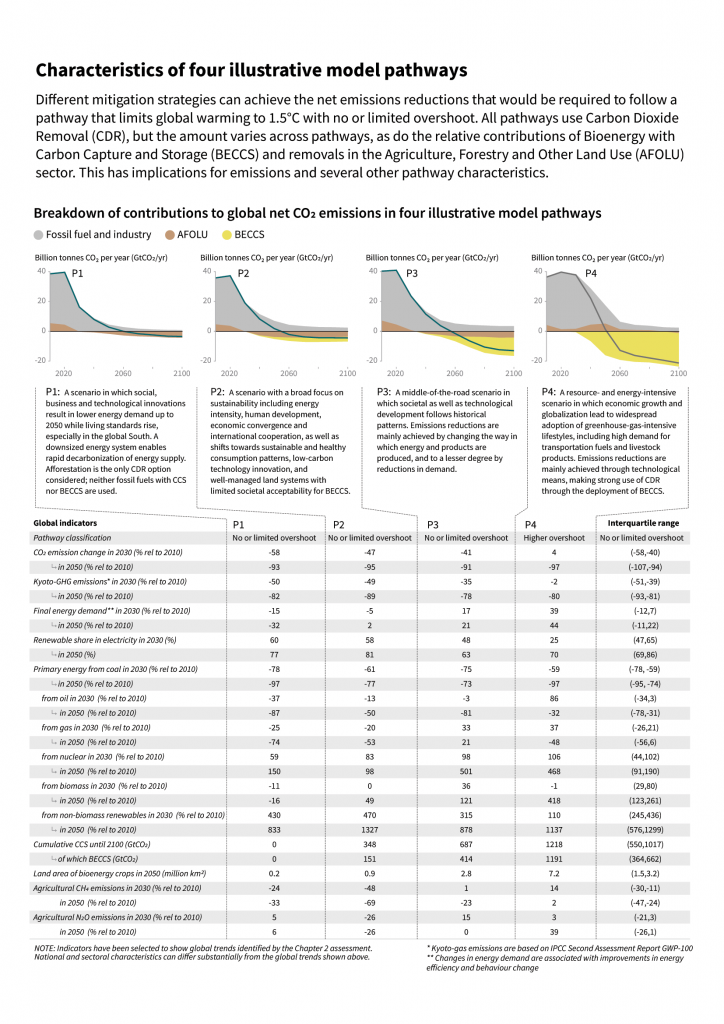|
HookedOnChthonics posted:Industrial society has a lot of dividends, but if they’re generated through unsustainable activity (and doled out incredibly inequitably across the population of the world) then…. what good has really been done? The good that has been done to those who have received it? Are you making an argument that because inequality exists there should be no striving for progress unless it can be guaranteed to be equally applied to everybody all at once?
|
|
|
|

|
| # ? Jun 7, 2024 11:11 |
|
Hmm, interesting framing—I think my response is that if it can’t be equally applied to everyone, then it isn’t worth labeling ‘progress.’ Colonialism, for instance, can’t be described as progress because any iota of ease it provided to citizens in the imperial core was generated through huge immiseration elsewhere, and the losses have always outweighed the gains. The financialized, fossil-fueled consumer economy may be great for creature comforts but similarly derives them by heaping a debt of oppressed labor, privation, and death across both space and also forward into time (though the due date on that bill is now rapidly and uncomfortably creeping from the indeterminate future to the immediate present). Don’t get me wrong, Im fully invested in Jamesian obligations to ensure the continued life and ease of all living things as a primary moral good, I just don’t think we can or should congratulate ourselves as having done at all a good job of it.
|
|
|
|
HookedOnChthonics posted:I’m sorry but isn’t that basically someone sincerely recreating this cartoon? No, the first image gives the impression that there hasn't been any progress at all because emissions have been continuously climbing but we're finally starting to hit our peak. There are certainly some things to be happy about.
|
|
|
|
gently caress our mental health, our comfort. The idea that "somebody is doing something about this!" is directly in the way of earnest efforts, of actual change. Our world/leaders/powers/trajectory... there's no credibility, no legitimacy on the climate change front. Our world is wrong and it must be forced to change. We need a world of people willing to sacrifice and fight, and giving them the impression that "actually this is definitely gonna work just keep trying" while we knowingly perpetrate unthinkable damage that will persist for generations in the name of our peace and prosperity is something I'd call evil (were there such a thing objectively). Never stop demanding more, never stop being furious. poo poo is truly hosed and unconscionable. Short of destroying our global establishment, only the threat of destroying it will bring real concessions and change.
|
|
|
|
BRJurgis posted:gently caress our mental health, our comfort. The idea that "somebody is doing something about this!" is directly in the way of earnest efforts, of actual change. Our world/leaders/powers/trajectory... there's no credibility, no legitimacy on the climate change front. Our world is wrong and it must be forced to change. We need a world of people willing to sacrifice and fight, and giving them the impression that "actually this is definitely gonna work just keep trying" while we knowingly perpetrate unthinkable damage that will persist for generations in the name of our peace and prosperity is something I'd call evil (were there such a thing objectively). https://twitter.com/MichaelEMann/status/1552805663688073219?s=20&t=rPT_jImXhqYbFQmxJvbhew
|
|
|
|
cheer up we're going to miss the target that wasn't enough in the first place by less now
|
|
|
|
Exciting to move from the era of climate denial into the era of climate cope - a funnier form of delusion https://twitter.com/thisisinsider/status/1552759826152931328?t=MCLjbLA-i1Eoa3JYmXho6A&s=19
|
|
|
|
Failed Imagineer posted:Exciting to move from the era of climate denial into the era of climate cope - a funnier form of delusion Copy the article poster I'm not an insider come in I WANT TO READ ABOUT THE EYE QUIRK!
|
|
|
|
Insider posted:A weird evolutionary quirk in the human eye could be what saves us from climate change
|
|
|
|
Crosby B. Alfred posted:https://twitter.com/MichaelEMann/status/1552805663688073219?s=20&t=rPT_jImXhqYbFQmxJvbhew I don't want to be overly negative but this only really matters if its not cancelled out by increases in CO2 emissions elsewhere (and even then, I would still characterize even this reduction in emissions as fundamentally unsustainable considering America's extremely high emissions but per capita and absolutely). Like to put things in context, if the United States managed to fully halve its emissions per capita right now it would still be far worse than a number of other developed countries like France, the UK and Italy. It would be more in line with other major industrial powers that have major issues with overall pollution like China, Germany and Japan. khwarezm fucked around with this message at 22:04 on Jul 30, 2022 |
|
|
|
khwarezm posted:I don't want to be overly negative but this only really matters if its not cancelled out by increases in CO2 emissions elsewhere (and even then, I would still characterize even this reduction in emissions as fundamentally unsustainable considering America's extremely high emissions but per capita and absolutely). I agree but what does this have to do with what I responded to originally? Let's look again, do you agree with the below quote? BRJurgis posted:gently caress our mental health, our comfort. The idea that "somebody is doing something about this!" is directly in the way of earnest efforts, of actual change. Our world/leaders/powers/trajectory... there's no credibility, no legitimacy on the climate change front. Our world is wrong and it must be forced to change.
|
|
|
|
MightyBigMinus posted:cheer up we're going to miss the target that wasn't enough in the first place by less now Speaking of which, can anyone expand on just how much (in terms of impact) Paris, current plans, etc, is "not enough"? It strikes me that Congress is definitely one of those institutions tasked with problem solving where it's all but inevitable that what's actually needed in the legislation to solve problem x is almost an afterthought (if not a darkly humorous anecdote) in comparison to the focus afforded to what legislation the body collectively believes they will actually be able to achieve. And with the latter greatly-reduced-in-effectiveness target legislation as their starting point, they then proceed to continue watering down said legislation at nearly every step of the "negotiation" process until we eventually arrive at our final bill which was originally designed to solve said problem x. It gets said a lot that we cannot negotiate with the laws of physics. So how much are we projected to miss the mark by, and how significant of an impact is that difference? Is there a margin for error? Or are we dealing with Cold Equations? -Blackadder- fucked around with this message at 05:44 on Jul 31, 2022 |
|
|
|
None of the plans are enough because as poo poo gets worse, people aren't going to rise to the challenge, they're going to adopt a "get it while the gettin's good" attitude. Especially the Boomers, who are determined to go out as wastefully as extra-humanly possible. And that's just individual action. Because profits uber alles, corporations are going to cater to this loving greedy last gasp in every way imaginable. The large-scale inaction worldwide by leaders suggests that we've already passed the point of no return or are so close to it that "meh, why stop now while there are so many lucrative opportunities for shareholders left to exploit!" Humanity would have to agree to stop poo poo's hosed, and the only thing that can save us as a species in the long term at this point are benevolent aliens with a magical biosphere reset technology or a truly corrective pandemic/Toba bottleneck scenario. BIG HEADLINE fucked around with this message at 08:09 on Jul 31, 2022 |
|
|
|
BIG HEADLINE posted:
I don't like that we're choosing to throw more energy usage at the problem, but with temperatures reaching ~45C in Spain, ~40C in the UK and almost 40C in southern Germany, I can absolutely understand the desire to not melt in the heat, especially humid heat. Hell, even just 25C was borderline unbearable here in the beginning of July, since it coincided with extremely high humidity. It was strenuous to even breathe. In northern Europe, we've traditionally built houses to retain heat rather than shed it, and that really fucks us over now, even in temperatures that wouldn't be considered extreme in other parts of the world. We need to change our vernacular architecture to match these new conditions, and that is unfortunately a very slow process. In comparison, AC is a quick and easy band-aid, with consequences that are sometime in the future, not right now. And we all desire instant gratification. I think we should just accept that it's warm instead of fighting it with AC*, and learn to embrace the siesta and light airy clothing. While we're at it, we should abolish all inter-Europe flights and replace them with trains. We've got the infrastructure already, crossing from like Sweden to Portugal on a high-speed train should really take less than 10-12 hours. I'm guilty of flying ~twice a year to visit my girlfriend's family in southern Germany, because the rail connections are just weird and bizarrely expensive. But with the prices of flying and how lovely everything related to air travel is now, I think we'll take the train next time, even though it takes 15 hours and changing trains 3-4 times to get to Munich. We did make good use of the €9 ticket while we were there, it's something that really should be in place everywhere all the time. And props to Munich's public transit, poo poo just works. * Obviously it's not that easy in places where the heat is literally dangerous, I'm generally talking about Europe and other mostly temperate regions here. We're lucky enough here that we can at least coast through the heat with some — honestly, quite minor — lifestyle changes, and lessen our contribution to overall energy consumption. KozmoNaut fucked around with this message at 11:25 on Jul 31, 2022 |
|
|
|
Are buildings radically different in northern Europe than central? Our homes are also well insulated for winters... and it works in the summer as well. I open the windows to cool during the night and close them and the blinds during the day, and it stays relatively cool all day.
|
|
|
|
Yeah, thick brick walls and plenty of insulation. Keeping windows open during the night does work, but only if it actually gets appreciably cool during the night. When the temperature stays above ~25C at night, the thermal mass of the walls also starts to work against you, trapping the heat and keeping interior temperatures high.
|
|
|
|
Crosby B. Alfred posted:I agree but what does this have to do with what I responded to originally? Let's look again, do you agree with the below quote? Dude don't get mad at me, BRJurgis should probably have a stiff drink and listen to some soothing music but its pretty evidently the case that we are nowhere near on track to reduce emissions enough to avoid major disaster. I've spent my life listening to the goals and plans that have always stalled out and hugely downplayed the problem, we're locked into 2 degrees at this point minimum, considering the difficulties that will cause I'd gladly say that our world leaders have no credibility on the climate change front when things look this bad.
|
|
|
|
KozmoNaut posted:In northern Europe, we've traditionally built houses to retain heat rather than shed it, and that really fucks us over now, even in temperatures that wouldn't be considered extreme in other parts of the world. We need to change our vernacular architecture to match these new conditions, and that is unfortunately a very slow process. In comparison, AC is a quick and easy band-aid, with consequences that are sometime in the future, not right now. And we all desire instant gratification. I'm really only familiar with my own house in this regard so please feel free to educate me on this, but in terms of carbon footprint, if average temps are rising across the board wouldn't that lead to a reduction in energy spent on climate control, or at least even out? I'm just thinking about how it costs us hundreds of dollars a month to heat our house with electricity when it reaches sub-freezing temperatures, versus the amount it costs to cool it down in the Summer. Seems easier to bring 90 degree heat down to 76 in Summer than 20 degree heat up to 66 in Winter. I'm not sure how European houses are mostly set up for heat and how great they retain it versus my crappy 19050's American house that I dumped gobs of insulation into and is still cold. It is mostly brick though but that doesn't seem to be helping warm it when the trees block a lot of light. davebo fucked around with this message at 18:12 on Jul 31, 2022 |
|
|
|
mobby_6kl posted:Are buildings radically different in northern Europe than central? Our homes are also well insulated for winters... and it works in the summer as well. I open the windows to cool during the night and close them and the blinds during the day, and it stays relatively cool all day. I'd say buildings in northern europe are wooden and built differently compared to the houses in continental europe that use other materials. Norhern european houses have more in common with north american houses in that way. Except built to a different standard. IMO wood is just better suited for really cold climes. Thermal mass in the walls will absolutely wreck you in sustained cold. Any thermal mass should be placed inside the house, like at the center. For single homes I think the issue is less of a problem, what keeps the heat in does also keep the heat out and there are simple solutions like awnings over windows, heat recovery ventilation that can help keep cold in as well heat in during winter. There is also a form of AC that uses a ground loop heat pumps borehole and so uses a lot less energy than conventional AC; uses the ground to cool the house and returns the heat into the bedrock. The real problem is for people living in apartments and huge blocks, those tend to get hot as hell in summer. It's the thermal mass working against you. Goes in both directions. His Divine Shadow fucked around with this message at 19:06 on Jul 31, 2022 |
|
|
|
khwarezm posted:Dude don't get mad at me, BRJurgis should probably have a stiff drink and listen to some soothing music but its pretty evidently the case that we are nowhere near on track to reduce emissions enough to avoid major disaster. I've spent my life listening to the goals and plans that have always stalled out and hugely downplayed the problem, we're locked into 2 degrees at this point minimum, considering the difficulties that will cause I'd gladly say that our world leaders have no credibility on the climate change front when things look this bad. I'm not mad, just confused. What's exactly is the point of disputing the earlier point where it claimed there hasn't been any progress, there certainly has been progress and you're following up with "Well, things will still be bad?". As far as I can tell, our world leaders are trying to solve an existential problem that humanity faces. While there are some that are certainly lazy or inept, it's fundamentally a difficult problem to solve and nothing something that can be done overnight or even a single generation. It sucks that we're probably going to miss the Paris Climate accord but that's a far cry from the claim there hasn't been any progress and literally apocalyptic scenarios like RCP 8.5 are no longer possible.
|
|
|
|
You really have to be huffing our hegemons' farts to think we've eliminated any worst case scenarios. The pinky swears made at Paris are only sustainable until any of its participants feel like doing something else. Once poo poo really hits the fan in the 2+ degrees of warming we've already locked in it's a fair bet people and nations just hit the gas hard on whatever it takes to survive or descend into carbon intensive wars, did your precogs model for that?
|
|
|
|
Yeah it's keeping this stuff going through disasters and random political swings that is gonna be the issue.
|
|
|
|
-Blackadder- posted:Speaking of which, can anyone expand on just how much (in terms of impact) Paris, current plans, etc, is "not enough"? a few years later the IPCC cranked out a 'special report' on 1.5, because the situation needed to change immediately and they didn't think they could wait for ar6 to make it more obvious (lol turns out even though ar6 does we still don't care!). thats this thing: https://www.ipcc.ch/sr15/ if you click on the first "summary for policy makers" part, and then click on the "explore graphics" link you will see five graphics. focus on just three of them: SPM.1, SPM.3a & 3b.  this is SPM.1, basically the best one-stop-shop "map" to climate change at the highest level. ignoring purple for now, the first three graphs essentially have a grey line and a blue line. I like to think of them as the "1.5" line and the "2.0" line. its not really that simple and 2017 data shows it more as like the "1.3" line and the "1.7" line, but ar6 has retroactively shown warming was marginally higher than expected. the big top main graph shows what the temperature change will be *IF* we follow the behavior (emissions reductions) seen in the bottom three graphs. focusing in on the bottom left one you can see, as plain as it can possibly be shown, what needs to happen to greenhouse gas emissions between now and 2040-2055. essentially this report is what led everyone to adopt "net-zero by 2050" targets and language. this is *nominally* the goal. now compare that to the graph in the tweet showing what the biden/manchin/inflation-something-act will do for just america (the worst offender). Crosby B. Alfred posted:https://twitter.com/MichaelEMann/status/1552805663688073219?s=20&t=rPT_jImXhqYbFQmxJvbhew note that the y-axis does not go to zero. MightyBigMinus fucked around with this message at 05:46 on Aug 1, 2022 |
|
|
|
MightyBigMinus posted:note that the y-axis does not go to zero. The high end of the orange range only shows a slope of -100/yr, which (extrapolating from 4500 in 2030) would become 2500mmt in 2050. Whoops, that's absolutely nowhere near zero! The low end of the blue range implies a slope of approx -120/yr, or (extrapolating from ~4300 in 2030) 1900mmt in 2050. Those of you with college educations will note this is also a whole lot higher than zero emissions. In summary,
|
|
|
|
Any climate agreement not backed by a nuclear doomsday device for missing targets will fail. I posted this as an overly edgy joke but now that I think about it, that really might be the only way
|
|
|
|
bitprophet posted:Though to be fair, the x-axis also doesn't go to 2050. I lack a working copy of a good image editor so I can't attempt to visually extrapolate, and IANAS(tatistician|cientist), but going by the image, the rosiest prediction seems to be a reduction from 5500 to 3750 over 10 years, or 175 per year, which (continuing from that 3750 point in 2030 for another 20 years) would result in ~250mmt in 2050. Not zero but kinda close? fair points, but this is where the next two graphs I mentioned come in (SPM.3a & SPM.3b) First off 3a shows you the blue and gray ranges again. This time instead of just being simple straight lines they've modeled out four "pathways" (P1, P2, etc)  Notice that all of them involve going negative by between 2 and 20Gt/yr. How would that work? Well thats what 3b is for, breaking down the four pathways based on the assumed-available (not actually available) options.  Note the brown and yellow sections. Brown is essentially "a trillion trees plus also letting a giant chunk of grazing land re-wild (while stopping any current deforestation ofc)". Yellow, good old BECCS, is the assumption that we will replace much of the coal/gas fossil fuel sector by growing poo poo tons of stuff like switchgrass (whatever biomass grows fastest), pyrolizing it, consuming the bio-gas as a nat-gas replacement for energy infrastructure, and burying the carbon. The -20Gt/yr of this you see in P4 would imply that we create a global BECCS industry approximately half the size of the entire current global fossil fuel industry from an energy output perspective. From a land-use perspective it something like a sixth of all arable land. Notice in *all* of these scenarios THE FIRST HALF IS THE EASY HALF. That is, emissions drop much faster from 2020 to 2035 than they do from 2035 to 2050. That is why the biden/manchin/inflation plan being inadequate for the first half is setting us up to be "not even remotely close" for the second half. This essentially means that even 2C is low-probability at this point. MightyBigMinus fucked around with this message at 21:58 on Aug 1, 2022 |
|
|
|
Potato Salad posted:Any climate agreement not backed by a nuclear doomsday device for missing targets will fail. metal gear climatewalker, a dumb butterfly robot that monitors CO2 levels instead of missle radars.
|
|
|
|
https://twitter.com/AriNatter/status/1554872092725764098
|
|
|
|
mobby_6kl posted:Are buildings radically different in northern Europe than central? Our homes are also well insulated for winters... and it works in the summer as well. I open the windows to cool during the night and close them and the blinds during the day, and it stays relatively cool all day. A big factor is solar thermal gain. A building in high latitudes tends to have larger windows so you can get lots of natural light deep into the floorplate. Move nearer the tropics and people start trying to avoid that at all costs, because solar radiation landing inside your house has a massive heating effect too. Features like colonnades or riads ensure that any solar illumination is indirect, minimising the heating it causes. If you could gather all the data, you'd probably find there's a latitude where you no longer see skylights on buildings. A tropic of velux, if you like.
|
|
|
|
Looks like the IRA thingie passed. How doomerish should I be?
|
|
|
|
Scam Likely posted:Looks like the IRA bill passed. It's pretty incredible. There were indeed some compromises that had to be made to get it passed at all, but the climate provisions and spending are unambiguously good, enormous in scale and scope, and are going to be transformative. Here's a nice summary of some of the great things included: https://www.americanprogress.org/article/5-major-benefits-of-the-inflation-reduction-acts-climate-investments/ This is step one. We are crossing the starting line, not the finish line. It is, however, a big loving deal.
|
|
|
|
Scam Likely posted:Looks like the IRA thingie passed. How doomerish should I be? It's not perfect but a pretty big loving deal, https://twitter.com/BillGates/status/1555941261814554624?s=20&t=hBcjpNmDi5_f7FqgYrz4RQ
|
|
|
|
I see the IRA thing mentioned on Twitter and who do I find? https://twitter.com/BjornLomborg/status/1556213628424130563 https://twitter.com/BjornLomborg/status/1556274860854321154 I can't believe this lump of poo poo is still around.
|
|
|
|
Catch me up, he's a grifter who should be ignored?
|
|
|
|
Bolt Yaride posted:Catch me up, he's a grifter who should be ignored? https://www.desmog.com/bjorn-lomborg/ I have a particular disdain for 'lukewarmists' like Lomborg who try to present themselves as the only adults in the room while everybody else is a crazy chickelittle, so I'm probably a bit biased but I'd happily go to a public execution of these fucks.
|
|
|
|
^^Bolt Yaride posted:Catch me up, he's a grifter who should be ignored? Also, khwarezm or anyone, what actually is the deal with the Great Barrier Reef?
|
|
|
|
Wow I kinda assumed the climate bill had been watered down to.a big pile of nothing, but since that's what Lomborg thinks then it must actually be pretty decent, actually Agreed that I would love to see that guy get dragged limb from limb by wild horses, in Minecraft. A traitor to his species
|
|
|
|
Failed Imagineer posted:Wow I kinda assumed the climate bill had been watered down to.a big pile of nothing, but since that's what Lomborg thinks then it must actually be pretty decent, actually That's fair enough but he's just some guy with a political science degree so no one should care what he has to say about climate science. He's only a thing because it was convenient for others to pretend he somehow mattered.
|
|
|
|
I'm seeing a lot of op-eds and vague breakdowns, but is there a thorough analysis of what this bill does anywhere? Plus gently caress that climate denier guy, why give his opinions any more oxygen? e: No longer phone posting and was able to find the actual text: https://www.democrats.senate.gov/imo/media/doc/inflation_reduction_act_of_2022.pdf 40-19 (B) TASK FORCE TO DESIGN AN IRS-RUN FREE ‘‘DIRECT EFILE’’ TAX RETURN SYSTEM. For necessary expenses of the Internal Revenue Service to deliver to Congress, within nine months following the date of the enactment of this Act, a report on (I) the cost (including options for differential coverage based on taxpayer adjusted gross income and return complexity) of developing and running a free direct efile tax return system, including costs to build and administer each release, with a focus on multi-lingual and mobile-friendly features and safeguards for taxpayer data; (II) taxpayer opinions, expectations, and level of trust, based on surveys, for such a free direct efile system; and the opinions of an independent third-party on the overall feasibility, approach, schedule, cost, organizational design, and Internal Revenue Service capacity to deliver such a direct efile tax return system, $15,000,000, to remain available until September 30, 2023 This bit isn't climate related, but I loving HATE Turbo Tax with a passion so this part made me happy. Scam Likely fucked around with this message at 01:11 on Aug 8, 2022 |
|
|
|

|
| # ? Jun 7, 2024 11:11 |
|
The West Virginia Coal Association isn't too happy about it.quote:(The Hill) — The West Virginia Coal Association and several other state-based coal industry groups on Wednesday blasted the tax and climate deal that U.S. Sen. Joe Manchin (D-W.Va.) agreed to last week, warning it will “severely threaten American coal” and an estimated 381,000 jobs.
|
|
|































